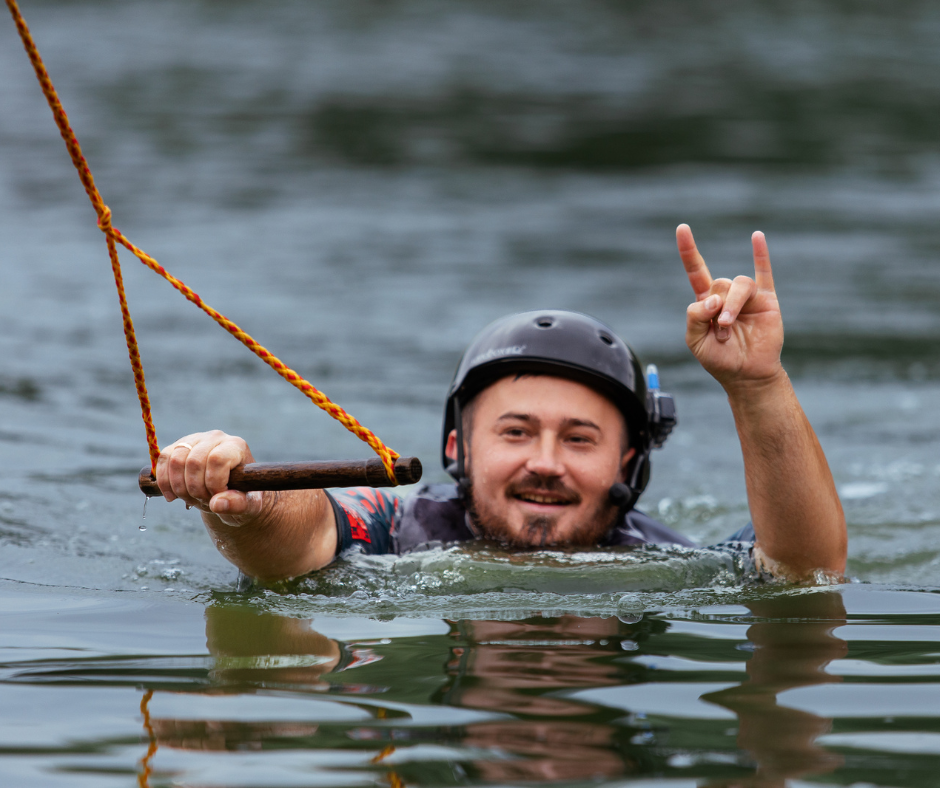PAVLO KORYTNIUK lost his leg in July 2022 as a result of a massive artillery strike by Russian forces in the Donetsk region. Following his injuryhe took on new challenges, such as trekking through the Tatra Mountains and skydiving—experiences he admits he wouldn’t have considered before. Pavlo aspires to inspire others who have been wounded and actively supports veterans transitioning back from the frontlines.
About himself. I have my goals and I stay focused on achieving them. I might come across as reserved, but that’s not the case. When I was younger, I was more social, but now I’m more selective about who I engage with. I don’t like wasting time on pointless or uninteresting conversations. I gravitate towards people from whom I can learn something.
The best conversation partner and psychologist for me is my wife. We talk about deep topics, and she’s not just a good listener; she truly hears me. We can talk for hours, even until late at night.
A lot of psychologists today have their own traumas, and instead of dealing with them, they go on to help others. When you see someone who is still hurting themselves, it’s hard to trust their advice. Anyone can offer advice, but I believe it’s essential to demonstrate, through personal experience, how to overcome obstacles.
From my own experience, I’ve learned that the answers to most of life’s challenges are within us. Sometimes, you just need to talk to someone you trust, get your thoughts out, and you’ll find your answers on your own.
It’s important not to fill your mind with negative thoughts, but to do quality self-reflection and work on it, rather than just sitting and feeling sorry for yourself. Because self-pity usually leads to hitting rock bottom.
A book I read, Transurfing Reality, suggests that when a problem arises, we should reduce its significance, take a step back, and think about something else for a while. When we overcome a problem, we often think it wasn’t such a big deal after all. That’s how we should view problems—diminish their importance so we can see the way out and figure out what to do next.
I’m a calm person, and it’s very hard to throw me off balance. On one hand, that’s good, but on the other, keeping emotions inside can be tough. Sometimes, I start to feel like something’s wrong with me, but in reality, I just need to release my emotions.
What helps me is going to the gym, getting outdoors with a tent, or even taking a short nap during the day. It’s important to give yourself a little time, think things through, and not make decisions based on emotions. Although I also believe that a bit of spontaneity is essential in life.
About inspiration. I’m inspired by personal growth and peace. Many people love to go to resorts where there’s a lot of socializing, but my wife and I enjoy quiet, calm places where there aren’t many people. That’s when we truly feel connected to ourselves and to the surroundings. Books inspire me, and lately, sports have started to inspire me too. After my injury, it took almost a year to recover from all the physical effects. I was working on the computer and realized that I was becoming physically sluggish. Without exercise, my mind wasn’t functioning as well either.
I joined adaptive sports, and a coach, who had seen me in a photo, persuaded me for almost a year to come and try. At first, I thought he was being too persistent, but I decided to give it a shot. Now, I’m a candidate for master of sports in bench press.
Before the war. I was trained as a primary school teacher and an English language teacher. However, I didn’t continue my studies because my father passed away just a day after my graduation. I had to start working various jobs: I worked as a sales associate in electronics stores, as a consultant, I went to Poland, and I worked as a security guard at an agricultural company. Eventually, the management noticed me, and I was appointed head of the security service. The workload was so heavy that I would only come home to drop off my salary before heading back to work. There was no time for my personal life. I lasted for a year in that pace.
I took a short break, went to the mountains, and then the war broke out.
About the war. When the full-scale war began, I received a call from my unit, where I had done my mandatory military service. But it was in Vinnytsia, and I wasn’t sure how to get there. I called my military commissar, and they kept me at the recruitment office for a while, where I did some light security work. After that, I was sent to the 14th Brigade, the Volyn Infantry, and they gave me a “Maxim” machine gun. I thought they were joking, but they weren’t.
For the first month, we were figuring out what was going on. Once we did, I regret that I didn’t get to fight much. In one of the first battles, I got injured.
About the injury. One time, an 82mm mortar shell hit, and I was struck by shrapnel. On another occasion, when a comrade was injured, another soldier and I ran to help him. The situation was intense: we were running, and then suddenly we were lying down—this time, the shell that hit us was much bigger. There was a crater nearby, and I thought the shell wouldn’t land in the same spot twice. So, we both lay down in that huge crater. It was large enough to fit five more people. We were both injured, applied tourniquets, and waited for a few hours. I tried to crawl away, but realized I couldn’t with my injuries, so I returned. I removed the tourniquet from my arm, and it was fine, but I was afraid to take it off my leg. Based on the sensations, I thought the injury was below the knee.
We were lucky nothing else hit us because everything around us was exploding. We were covered in dirt. When the Russians changed positions and the bombardment eased a little, our team was able to reach us.
I was brought to Druzhkivka, and they asked me to move my toes. I only felt something like an electric charge. I still sometimes experience those phantom pains—like my leg is being connected to an electric current, or it’s being squeezed, or my toes are curled, and I can’t straighten them. The first time I used crutches, it felt like my leg was bent at the knee, and I had to lie on my stomach because I couldn’t straighten it. Dealing with the phantom pain, I learned that distraction helps. Some of the guys with amputations suggest “making peace” with the phantom limb to ease the pain, while others find mirror therapy helpful.
About accepting the injury. I woke up in Dnipro without my leg. I didn’t feel like I was disabled. I was just thinking about what to do next. My wife told me she was waiting to see if I would lose my spirit, but I told her, “We’re fine, we move forward.” Now, when I look at old photos, I can’t remember myself with two legs. I can’t even recall what it felt like to walk on both legs.
The deep conversations with my wife became the best form of rehabilitation. I had to calm down my other family members and reassure them that everything would be okay.
About convictions. It’s not so much about fate or the big picture, but I truly believe we have the power to choose who we want to be. It’s about taking control of our path rather than just letting life happen. Every experience, every moment leads us to become who we’re meant to be.
The war made me tougher and gave me a bit of healthy selfishness. I began to really listen to myself. I used to always say yes to helping others, sometimes neglecting my own needs. Now, I choose. Life has become much more interesting when I focus on doing what’s right for me, rather than just what others expect.
Once, at a public beach, I felt uncomfortable removing my prosthesis and going to swim. But then I realized I was doing it because I wanted to, not for anyone else. And I noticed that just as I didn’t care about what others thought, they didn’t care about me either.
About society’s reaction to injury. I notice how people react, but I don’t make a conscious effort to hide or flaunt my prosthesis. Military personnel usually make eye contact, while civilians often look away. Children are the most interesting to observe; they’re not afraid and are very direct. Sometimes I would even show them what I can do with my prosthesis. However, many parents tell their kids, “Don’t look, that’s not okay,” “Don’t ask,” or “Don’t point.” While I’m not bothered by it, and if someone approached me to ask, I would explain or show them. I enjoy interacting with children, but parents don’t always let them ask or explain things to them.
Overall, I firmly believe that prosthetics should be seen as something as ordinary as glasses or braces—nothing to make people uncomfortable or draw unnecessary attention.
On personal aspirations. Everyone has a mental image of the person they want to become. I want to become that person I imagine myself to be.
I remember during a sociology class, the professor asked, “What is the meaning of life for you?” and 90% of the group answered something like, “To start a family and just live.” But to me, those are very basic goals. Family is important, but what’s the point of dreaming or striving if that’s all we aim for? I believe the true meaning of life is about pursuing what you truly want to achieve. Family should be a support, not an obstacle, in that journey.
I also want to see the world. Interestingly, I’ve never been to the sea. I’d also like to visit more mountains, as I enjoyed them a lot.
Translated by Green Forest English School

